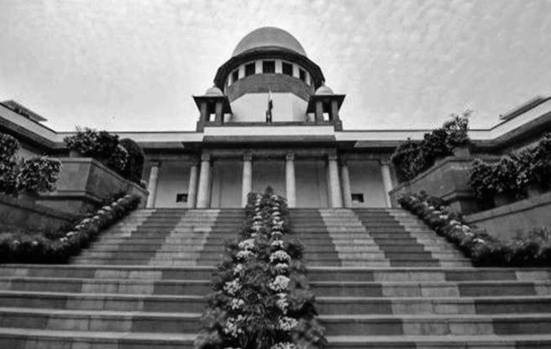LI NETWORK
The Supreme Court held that writ petition under Article 226 of the Constitution would not be maintainable in order to challenge an order which has been passed by the High Court in the exercise of its judicial powers.
Petitioner in this case, filed a domestic violence complaint before Metropolitan Magistrate, Bengaluru, which was dismissed. The appeal against this order was dismissed by the Additional Sessions Judge, Bengaluru. The High Court also dismissed the revision petition filed by the petitioner. The petitioner assailed this order passed by the High Court by filing a writ petition under Article 226 with a prayer to declare the judgment of the Single Judge ‘ void’.
The petitioner submitted that the writ petition under Article 226 is maintainable on the ground that the order dated 31 July2018 of the High Court is void ab initio. Elaborating her submissions, the petitioner has urged that the order has not been written by the Judge of the High Court. Moreover, the petitioner submits that the High Court, while disposing of the criminal revision, has not exercised its jurisdiction in a manner consistent with the provisions of Section 397 of the Code of Criminal Procedure 1973.
The petitioner has further submitted that in order to put forth a claim based on a relationship in the nature of marriage, it is not necessary under the law that neither of the parties should have a subsisting marriage and that notwithstanding the fact that the respondent was in a subsisting marriage, a valid claim under the Act would be maintainable in a situation such as the one which has been set up by the petitioner as the foundation for the grant of relief. She urged that in a situation such as the present, if the respondent who had a subsisting marriage entered into a relationship with her, there is no reason why a woman in the relationship should be left without a remedy.
The bench also refused to address the submissions made on merits by the petitioner.
The Court, however, left open the rights and remedies available to the petitioner, including by way of a Special Leave Petition under Article 136 of the Constitution to assail the judgment of the Single Judge. “Merely assailing the order as an order which is void would not enable a litigant to avoid the consequences which emanate from the order, by instituting a writ petition under Article 226.”
The Bench observed- “the writ petition under Article 226 of the Constitution was not maintainable for assailing the judgment of the Single judge of the High Court dated 31 July 2018, we expressly leave open the rights and remedies available to the petitioner, including by way of a Special Leave Petition under Article 136 of the Constitution to assail the judgment of the Single Judge of the High Court of Karnataka in proceedings before this Court”

